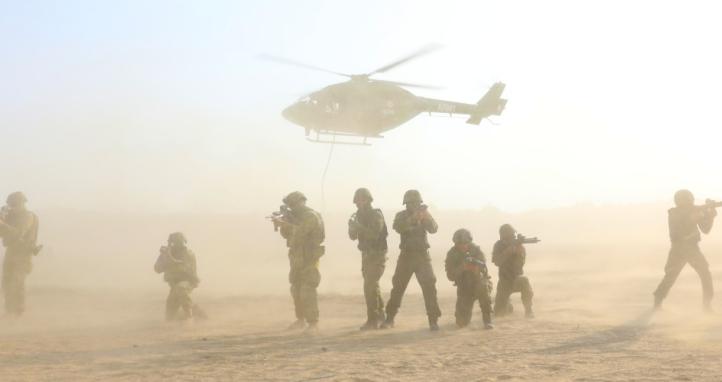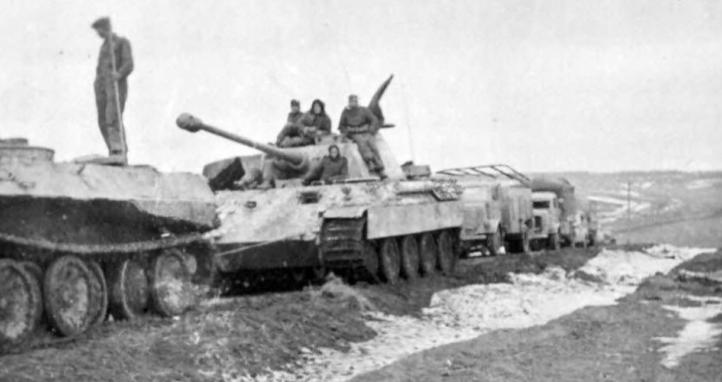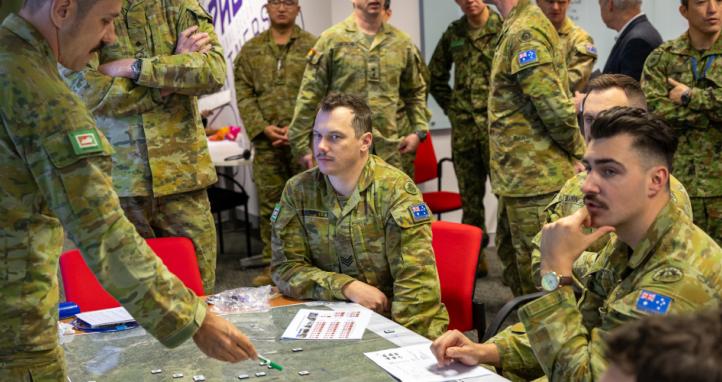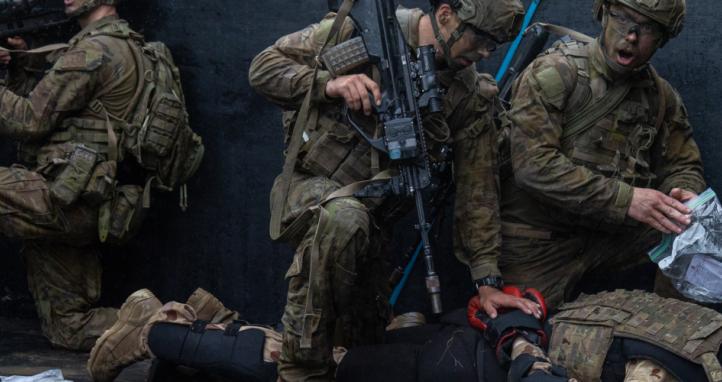Facts and figures
The 'Know Your Region' series is designed to support unit and individual professional military education on the South East Asian region. It's important for all serving members of our military to have a foundational knowledge of the countries and issues in the Indo-Pacific.
FIJI – AUSTRALIA: THE VUVALE PARTNERSHIP
On this page:
- Summary
- Vuvale and Security Cooperation
- Vuvale and Health
- Vuvale and Regional Issues
Summary
Fiji’s relationship with Australia has seen highs and lows. The lowest period in the relationship was following the Fijian military coup in 2006, which resulted in a number of years of significantly reduced economic and defence cooperation. In the years since the Fijian democratic election of 2014, the two nations have worked to strengthen their relationship and in 2019, the ‘Fiji-Australia Vuvale Partnership’ moved towards a closer bilateral relationship through ‘vuvale’, meaning ‘family’ in Fijian.
The partnership defines five pillars of cooperation:
- Strengthening our people-to-people links
- Enhancing our security cooperation
- Deepening our economic relationship
- Cooperating on regional and international issues
- Fostering closer institutional linkages in support of strong and inclusive societies
For more details, see the Fiji-Australia Vuvale Partnership. Some areas of the partnership are covered in more detail below.
Vuvale and Security Cooperation
The enhanced security cooperation under the Vuvale Partnership and Australia’s Defence Cooperation Program has resulted in greater cooperation between Fijian and Australian police forces and border security forces to improve Fijian and regional Pacific Island security.
The Australian Defence Force has an important role in the partnership and some of these engagements have been covered in the KYR Fiji Military pages.
The Defence partnership has introduced a reciprocal Status of Forces Agreement (SoFA) which increases ADF/RFMF opportunities for joint deployments on peacekeeping missions, exchanges and military exercises in both countries, and Australian support to Fiji’s maritime security operations. Each nation will continue to provide mutual support to disaster and humanitarian relief as can be seen in these videos:
- RFMF return home after helping bushfire recovery
- RFMF farewelled at Orbost
- ADF working with Fiji on military training facility
- Sapper Bryce tells his Blackrock story
- ADF soldiers deliver cyclone aid in Fiji
- ADF sends disaster relief supplies into Vanua Levu
- Guardian Class Patrol Boat handover to Fiji ceremony
- HMAS Adeleide returns home from OP Fiji Assist
- OP Fiji Assist – Preparations for construction works underway in Galoa, Fiji
Further information on the Defence partnership can be found in the articles below.
- Fiji and Australia Advancing the Defence Partnership
- Boe Declaration on Regional Security
- Australia and security in the Pacific Islands
- Lowy Institute: Safeguarding Australia’s Security Interests Through Closer Pacific Ties
- Fiji-Australia Status of Forces Agreement
- Australia outbids China to fund Fiji military base
- Fiji And Australian Armies Strengthen Vuvale Partnership With Coral Warrior Programme
- Fiji says it will strengthen defence cooperation with Australia
Vuvale and Regional Issues: Climate Change
Bilateral cooperation between Fiji and Australia on regional and international issues is important for the benefit of each other and the Pacific region. Through the Vuvale partnership, Australia has formally recognised the leadership role Fiji has in climate change. Fiji’s economy has been severely impacted in recent years by natural disasters as a result of climate change.
As well as the ADF providing humanitarian support to Fiji, the ADF is likely to conduct more domestic and foreign humanitarian and disaster relief operations as natural disasters increase as a consequence of climate change.
Fiji was the President of the 23rd Conference of the Parties in the UN Convention on Climate Change in 2017. The 2015 Paris Agreement – a legally binding international treaty on climate change - set a target for all member nations to reach zero emissions in the second half of this century. Fiji’s action plan towards long-term climate change is expected to have the country at zero-net emissions by 2050; and its efforts have been recognised by the UN.
Although a few years old, this video from 2015 gives a good insight into forest and climate protection on a Fijian island:
Australia is the world’s second largest exporter of thermal coal, and has also been impacted by climate change, as this video by Sir David Attenborough shows:
Through the Vuvale Partnership, both nations have formally committed to actions to reduce the impacts of climate change. By 2030, Australia has pledged to reduce emissions by 43% of its 2005 levels:
For more information on climate change in the context of Fiji and Australia, see the resources below:
- Videos
- Podcasts
- Articles
- Paradise Threatened: Fiji’s War Against Climate Change
- Fijian Government: Fiji Reaffirms Commitment to the Climate Action Momentum
- DFAT: Climate Change
- United Nations: Climate change report from IPCC a 'code red for humanity'
- Australia’s Climate Change Strategies
- Pacific Island Nations Want Partners That Will Help Them Fight Climate Change
- Life or death deadlines': Fiji's prime minister calls on Australia to adopt clear climate targets
- Bold challenge to decarbonise Australia in 15 years laid down by Climate Council
- Fiji’s PM refuses to let the Pacific be the 'sacrificial canary for coal-burning countries'
- In Fiji, the climate crisis is no longer the crisis of the future
Discussion Questions:
- Ties between Australia and Fiji have significantly improved over recent years, led by interactions in the areas of sport and military partnership(s). What outstanding issues need to be resolved to ensure a stronger relationship over the next decade? What issues such as the impact of climate change, might influence this?
- The military cooperation between Fiji and Australia in recent years has focused on mutual support to unfolding and realised environmental and humanitarian disasters. Should future bilateral exercises between the two nations be focused purely on managing similar crises, or does there still need to be an element of training in foundational warfighting skills? What are the biggest threats likely faced in the next decade that will require a bilateral military response?
- Fiji is a leading nation in the Pacific Islands forum, which consists of small nations which geographical territory covers a significant portion of the Pacific Ocean. With the rising influence of China in the region, along with a shift in US foreign policy increasingly focused towards the Indo-Pacific, there are likely going to be issues and potential points of tension between the two superpowers in this area. How can Australia leverage Fiji's leadership role in the PIF to support the maintenance of a peaceful, stable and secure region?
Last Reviewed 09/2024
Know your region
Know Your Region series gives you a shortcut to understanding other nations in the Indo-Pacific region.









